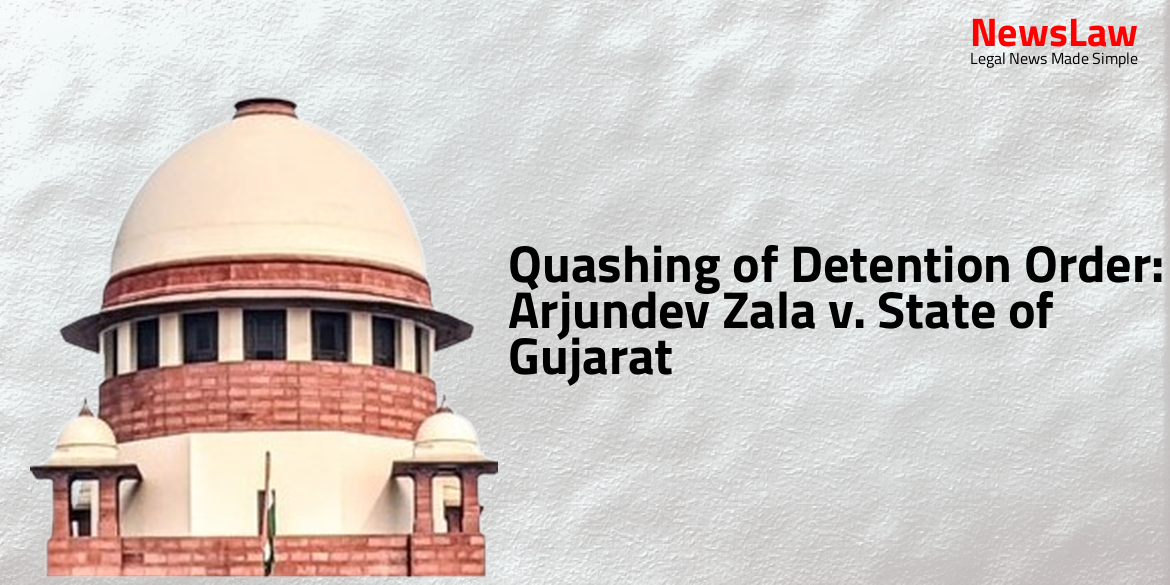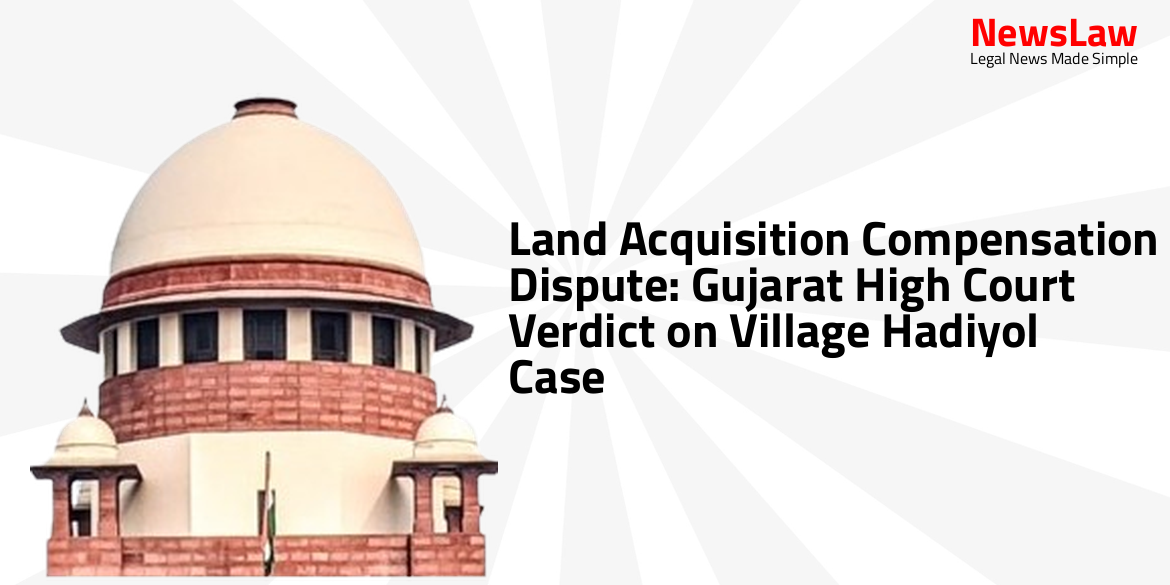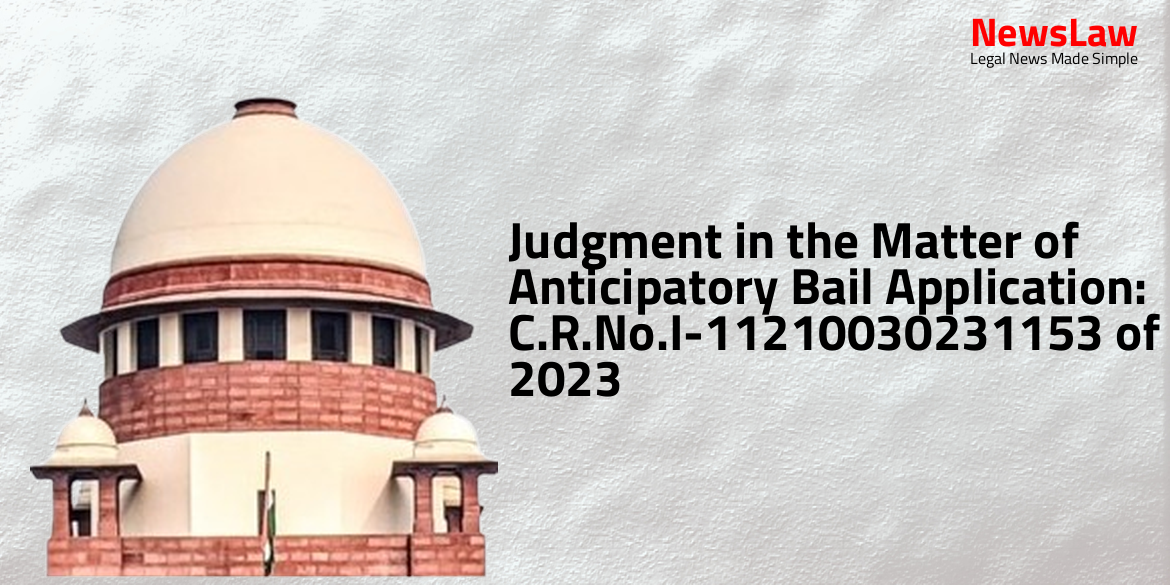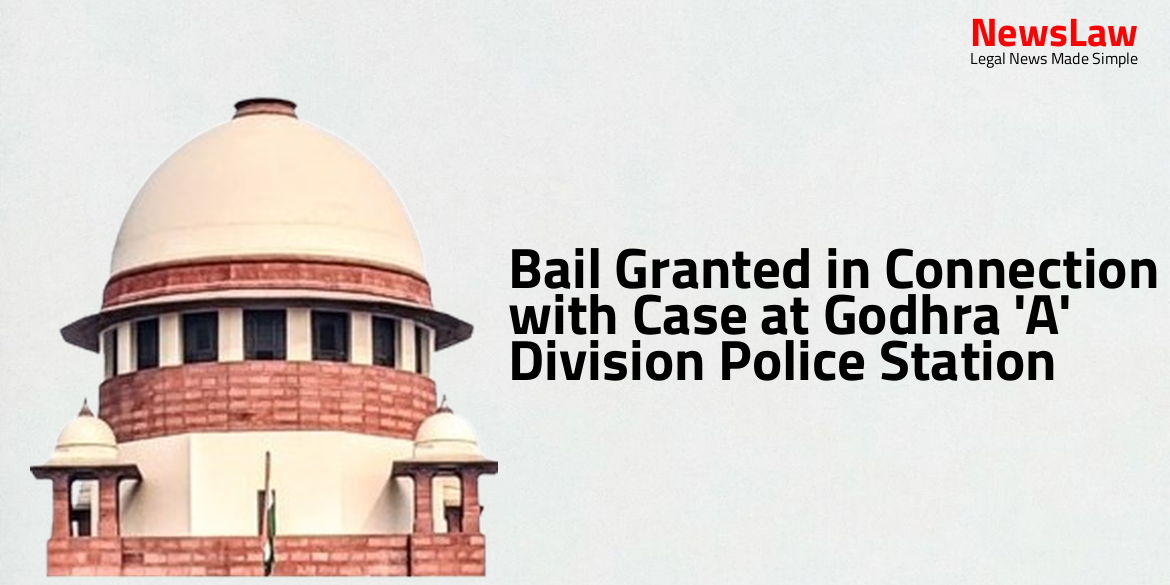In a significant ruling by the Gujarat High Court, the detention order in the case involving Arjundev Zala and the State of Gujarat has been quashed. The Court’s decision emphasizes the importance of upholding justice and legality in matters concerning preventive detention. Stay tuned for more insights on this crucial legal precedent.
Facts
- Petitioner was detained under the Gujarat Prevention of Anti-social Activities Act, 1985 by the Police Commissioner, Botad.
- The detention order was challenged by the petitioner on grounds of legality and validity.
- The petitioner was classified as a ‘dangerous person’ under Section 2(c) of the Act of 1985.
Issue
- The issue in this case is whether the order of detention passed by the Detaining Authority under the Act of 1985 is legally sustainable.
- The key question is whether the Detaining Authority exercised its powers within the framework of the Constitution of India and relevant laws.
- This issue involves a substantial question of law concerning the interpretation of the Constitution of India and any orders made thereunder.
- The parties have presented their arguments regarding the legality and validity of the detention order.
Arguments
- Mr. Arjundev Zala, learned counsel for the petitioner, argues that the grounds of detention do not relate to ‘public order’ but pertain to ‘law and order’.
- The offences allegedly committed by the detenue are seen as affecting law and order, not public order, as per the explanation under Section 3 of the Act, 1985.
- The Detaining Authority’s decision to prevent the detenue from acting prejudicially to public order in Botad is based on his antecedents and past activities.
- The State Counsel argues that the detenue, being a habitual offender, has had a negative impact on society.
Analysis
- The detaining authority wrongly concluded the activities of the detenue were ‘prejudicial to the maintenance of public order’ based on two criminal cases.
- The authority failed to prove how the detenue’s alleged anti-social activities affect or are likely to affect public order.
- Incidents of beating by the detenue were acknowledged, but they were deemed insufficient to prove a threat to public order.
- Being a bootlegger does not automatically warrant preventive detention unless it adversely impacts public order as per the law.
- Criminal cases against the detenue do not directly relate to the maintenance of public order.
- The detenue’s bail in multiple criminal cases indicates a lack of substantial evidence for affecting public order.
- The mentioned offences by the detenue do not establish a connection to public order maintenance.
- Contravention of any law affects order but must affect the community or public at large to be considered as affecting public order.
- Serious and aggravated forms of disorder directly affecting the community are distinguished from minor breaches of peace of local significance.
- Acts of assault or injury to specific persons do not necessarily lead to public disorder.
- A mere disturbance of law and order is not sufficient for action under the Preventive Detention Act; public order disturbance is required.
- The distinction between ‘law and order’ and ‘public order’ is clearly laid down in judicial decisions.
- Detention orders under the Preventive Detention Act are based on disturbances affecting public order, not just law and order.
- The alleged offences and allegations against the petitioner did not create a sense of insecurity, panic, or terror among the public.
- There is no evidence to suggest that the activities of the detenue affected or are likely to affect the maintenance of public order.
- The subjective satisfaction of the detaining authority is not considered legal, valid, or in accordance with the law.
- The petition is allowed based on the insufficiency of the material to justify the detention order.
Decision
- Order dated 01.01.2024 passed by the respondent authority is quashed
- Detenue directed to be set at liberty forthwith, if not required in any other case
- Rule made absolute accordingly
Case Title: ASIFBHAI @ BAAR NUMBER AJITBHAI @ GAJABHAI NARASDA THROUGH SAHIL AJITBHAI NARASDA Vs. THE STATE OF GUJARAT
Case Number: R/SCA/4764/2024



